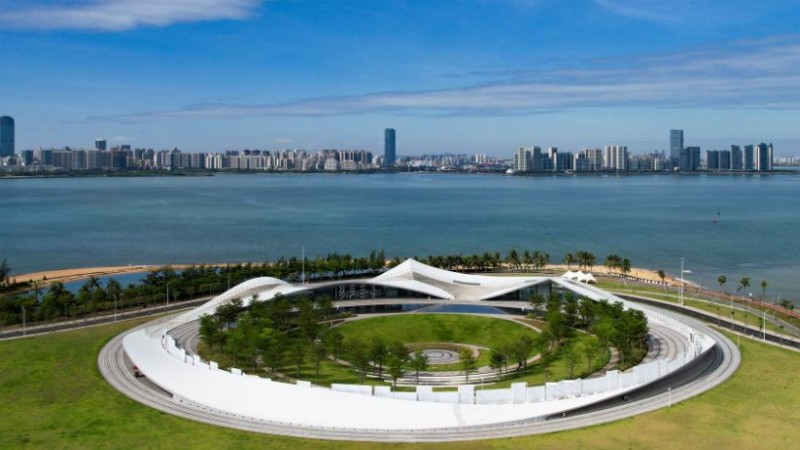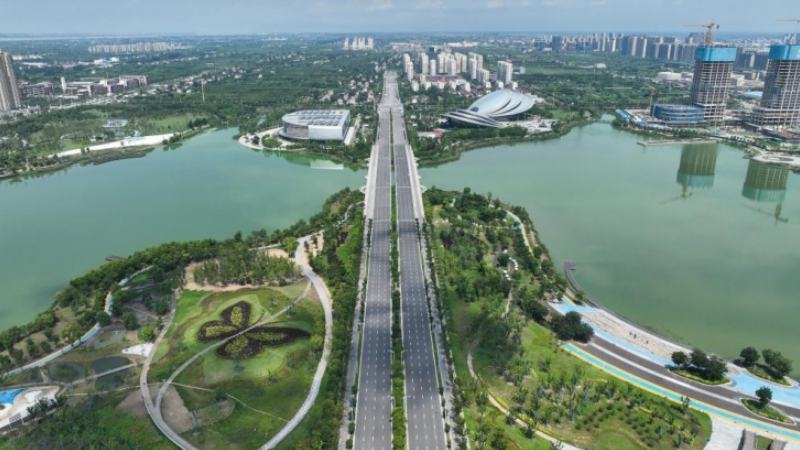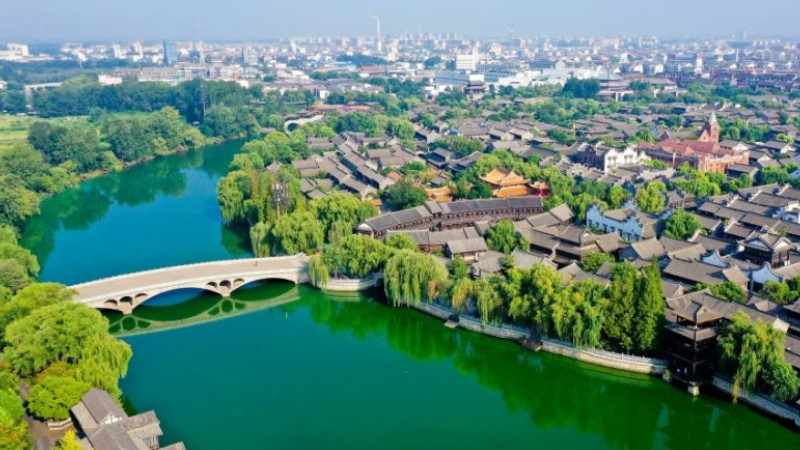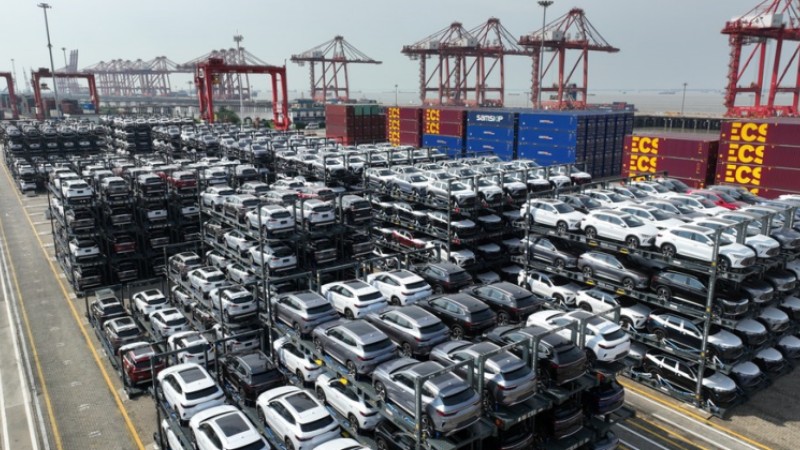China-S.Asia expo opens offline to boost trade despite noises
The 7th China-South Asia Expo officially kicked off in Kunming, the provincial capital of Southwest China's Yunnan Province, on Wednesday, fully resuming its offline exhibition for the first time since the start of the COVID-19 pandemic and offering a crucial platform for boosting economic and trade cooperation between China and South Asian countries.
The expo, the only national-level comprehensive exposition for multilateral diplomacy, economic and trade cooperation, and cultural exchanges between China and South Asian countries, has boosted trade between China and South Asian countries over the past decade, greatly benefiting relevant countries amid a difficult time of global economic hardship, Chinese officials and analysts said.
While some Western and Indian media outlets have been hyping negative claims about China's cooperation with South Asian countries, China's approach of openness and win-win cooperation as well as its massive economic development opportunities continue to draw closer ties with regional countries, analysts noted.
Speaking at the opening ceremony on Wednesday, Wang Yi, a member of the Political Bureau of the Communist Party of China (CPC) Central Committee and director of the Office of the Central Commission for Foreign Affairs, said China and South Asian countries are linked by mountains and rivers, respect each other as equals, work jointly toward the same goals and have achieved fruitful results in cooperation in various fields.
"China welcomes South Asian countries to continue to ride the 'express train' of China's development and share the dividends of China's development," Wang said, according to a statement from the Chinese Foreign Ministry. In the speech, Wang proposed that China and South Asian countries deepen strategic mutual trust, connectivity, economic and trade cooperation as well as cultural and people-to-people exchanges.
Underscoring the role of the expo as a major platform for multilateral diplomacy between China and South Asia and beyond such as Southeast Asia, Wang met with several regional leaders, including Sri Lankan Prime Minister Dinesh Gunawardena and Nepal's Vice President Ram Sahay Prasad Yadav.
Hosted by the Chinese Commerce Ministry and the Yunnan Provincial Government, this year's expo, which will run from Wednesday to Sunday, has attracted more than 2,000 enterprises from over 60 countries and regions. In addition to South Asian countries, other countries and regions in Southeast Asia and those under the Regional Comprehensive Economic Partnership are also participating in the expo. This year's expo includes 15 exhibition halls, with a total exhibition area of 150,000 square meters.
In terms of areas of cooperation highlighted at the expo, there are specific exhibition halls for biomedicine and big health, cultural and tourism, plateau modern agriculture and digital economy. The exhibitions will also be displayed online.
Boosting cooperation
"The China-South Asia Expo is a platform for cooperation between China and South Asia, which is conducive to connectivity between the two sides and also helps South Asian countries expand trade with China," Lan Jianxue, director of the Department of Asia-Pacific Studies at China Institute of International Studies, told the Global Times on Wednesday.
First started in 2013, the expo has helped increase trade between China and South Asian countries over the past decade. Total trade between China and South Asian countries jumped from less than $100 billion in 2013 to nearly $200 billion in 2022, recording an annual growth rate of 8.3 percent on average, according to official data.
As of August 2023, China's cumulative investment in South Asia reached nearly $15 billion, and the turnover of completed contract projects exceeded $200 billion. Landmark projects between China and South Asian countries include the China-Pakistan Economic Corridor, the Hambantota and Gwadar ports, the Padma Bridge in Bangladesh, the reconstruction and expansion of Pokhara Airport in Nepal and Nasir Airport in the Maldives, which have all made tangible contributions to development of South Asian countries and regional connectivity.
"These countries in South Asia, except for India, are willing to further develop ties with China under the framework of the Belt and Road Initiative, board the express train of China's economy and better integrate their own economies and supply chains with that of China," Qian Feng, director of the research department at the National Strategy Institute at Tsinghua University, told the Global Times on Wednesday.
Qian said China's approach of mutual respect and win-win cooperation has helped it gain great trust from South Asian countries.
However, as China and South Asian countries are continuously expanding normal, mutually beneficial economic and trade cooperation, some Western and Indian media outlets have been hyping negative claims in an attempt to undermine China's ties with South Asian countries. An article in The Economist on August 4 claimed that "Climate and China fears are bringing South Asia's countries closer." Another in the Press Trust of India in January suggested that "China wants to reduce India's influence in Indian Ocean region."
Such claims are baseless and ill-intentioned attempts to undermine China's cooperation with South Asian countries and pit India against China, Chinese experts said, stressing that China's ties with other countries are not targeted at any third party.
Also, "China's economic and trade cooperation with other countries is free from the influence of third-party countries," Qian said, noting China and India share great economic complementarity and have seen rapidly growing economic and trade cooperation despite tensions. "China and India have many common economic interests and should not be disturbed by these artificial factors in politics."
India's imports from China in at least 25 major commodity groups such as consumer electronics, auto components, and iron and steel products rose in fiscal 2023, according to Reuters, despite Indian politicians' call for reducing trade deficit with China and push for restrictions on Chinese exports. Notably, India's import of electronic instruments from China jumped 14 percent year-on-year, Reuters reported.
China's growing cooperation with countries in South Asia is not only beneficial for the participating countries but also the region as a whole, including India, which is also seeking to boost trade with fellow South Asian countries, Lan said.
And with the help of the China-South Asia Expo, cooperation between the two sides in a wide range of areas, including infrastructure construction, agriculture, new energy and green economy, and cross-border e-commerce, has huge potential, Qian said.
Photos
Related Stories
- China has never deliberately sought surplus in trade with EU: spokesperson
- China's int'l trade in goods, services tops 3.91 trln yuan in June
- China's Heilongjiang sees robust goods trade growth in H1
- Over 2,000 to attend 17th EU-China fair in SW China
- 18 Zambian firms to attend economic, trade expo in China
- Nation joining trade pact will benefit region
- Major infrastructure projects bolster Russia-China trade: Russian minister
- Chinese, Polish companies sign trade deals
- China's int'l trade in goods, services up 7 pct in April
- Opening-up to drive long-term global prospects
Copyright © 2023 People's Daily Online. All Rights Reserved.









